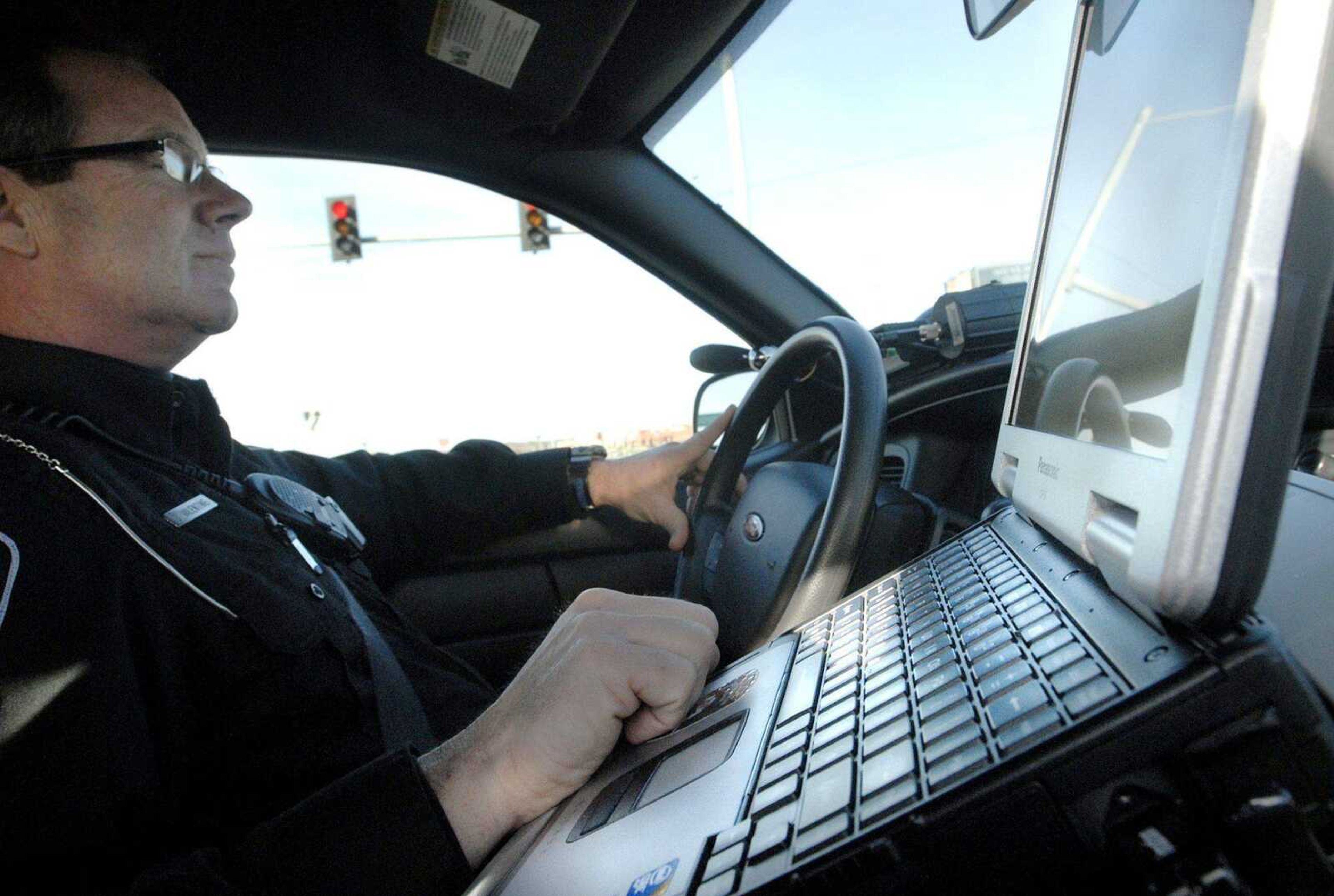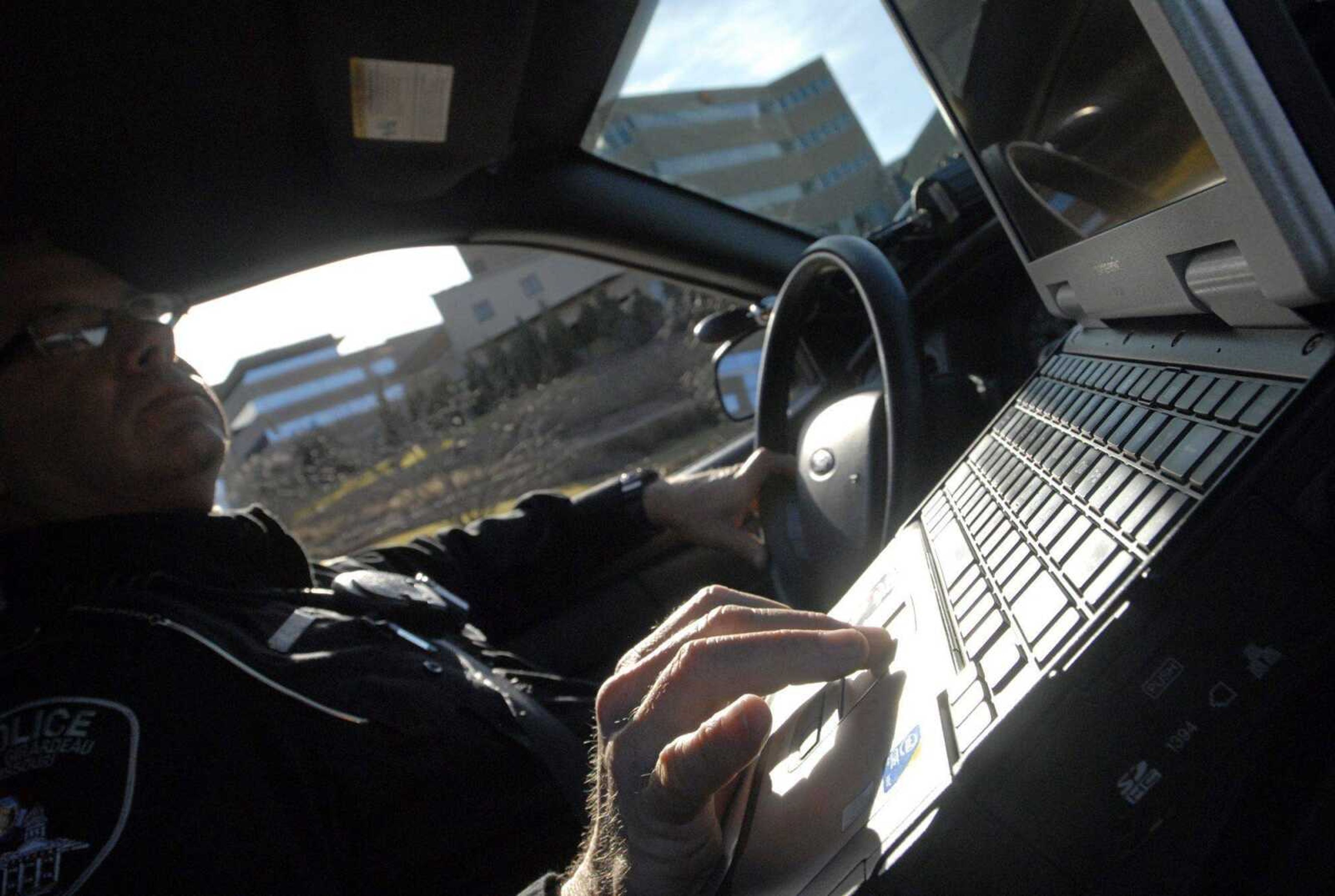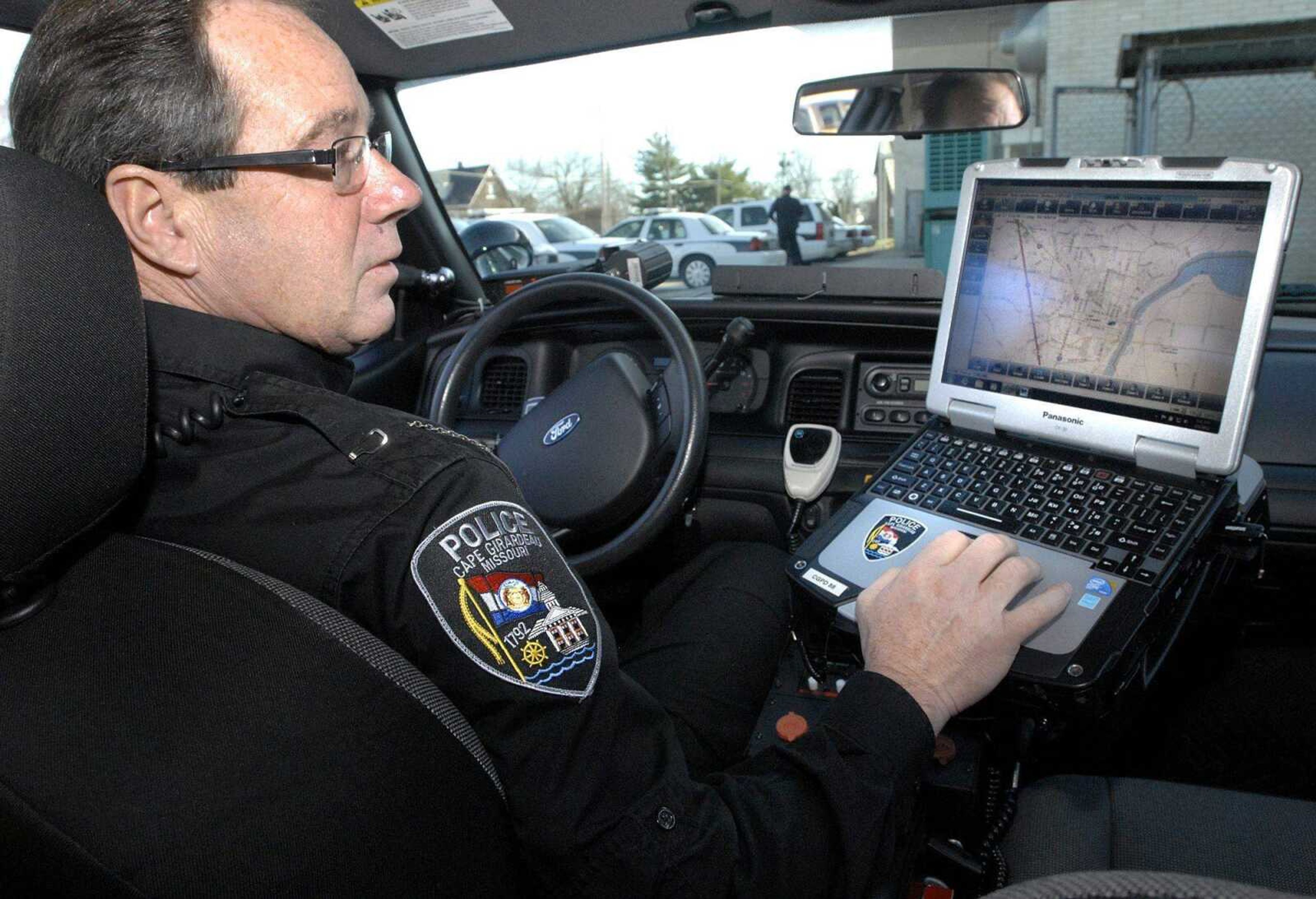Cape police more efficient with in-car laptops
Until two weeks ago, the Cape Girardeau police station was a staple in Officer Cary Dunavan's route no matter where he was patrolling. For every report Dunavan had to file, he had to make a trip back to the station, sit at a desk, log into a computer, type and print the report. Reports typically took Dunavan -- who has been on the force for about five years -- 45 minutes to complete, and he would write at least three during a shift...
Until two weeks ago, the Cape Girardeau police station was a staple in Officer Cary Dunavan's route no matter where he was patrolling.
For every report Dunavan had to file, he had to make a trip back to the station, sit at a desk, log into a computer, type and print the report. Reports typically took Dunavan -- who has been on the force for about five years -- 45 minutes to complete, and he would write at least three during a shift.
But with a laptop in Dunavan's squad car that enables him to file reports while mobile, the trips back to the police station have become less frequent.
Dunavan drives one of 29 patrol cars equipped with a laptop that makes it possible to file reports from the scene of an incident, pinpoint where other on-duty officers are and quickly look up warrants and other information on suspects.
"They really cut down on downtime," Dunavan said. "We're expected to be on the streets and we can be there, out there more with these laptops."

The laptops are funded by a Missouri Police Charitable Foundation Grant, police spokesman Darin Hickey said. The laptop setup -- which includes the computer, a center console, a docking station and wireless Internet for a year -- cost between $6,000 and $8,000 per car or roughly $200,000 total, Hickey said.
The Cape Girardeau Police Department was the largest Missouri police force to not have laptops in its police vehicles, Hickey said, noting that the department has funds for three more laptops.
The laptops have a Department of Revenue database to track motorist information, Hickey said. The identification process cuts down on the time it takes to write a report, he said. Reports written on the laptops can be wirelessly printed at the police station.
"Those reports used to keep officers at the station for however long it took," Hickey said. "Now they can stay across town and write them."
Saving time

With at least three reports to write and each one taking at least 45 minutes to prepare, Dunavan and other officers were spending at least a fourth of their 12-hour shifts in the police station doing clerical work.
Couple that lost portion of the shift with the amount of time communicating with dispatch via radio, and much of an officer's time is filled with internal work while most crime takes place outside the station's confines.
"It's tough getting a word in edgewise on the radio," Dunavan said. "It can take 30 seconds to 10 minutes to get a question answered on the radio."
While dispatchers' work will always be integral in law enforcement, the in-car laptops have significantly cut down on radio traffic, Dunavan said. Specifics of an incident -- its location, a suspect's name and picture and the whereabouts of other officers -- can be found on the laptops, but the computers lack a human element that is also crucial in an investigation, he said.
"Computers can't call you back and carry on a conversation," Dunavan said. "I couldn't do my job without dispatchers. They lighten the workload and relieve us of a lot of stress."
Dunavan's efficiency with his laptop has made for less time spent on traffic stops and violations, he said. Since getting the laptop, Dunavan says he has written a speeding ticket in less than three minutes and filed an accident report while both of the wreck's parties were still on the scene.
"It's a definite bonus for citizens," he said.
When reports are filed, they are a not saved in a database at the police station, but in a central depository in Jefferson City, Mo., Dunavan said. If information is lost at the station or even in the computer itself, it can be retrieved electronically from the Jefferson City database.
The department has encountered a few problems with the technology. Not all the squad cars equipped with a laptop appear on the global positioning system that is supposed to allow officers to see where other officers are patrolling.
The problem is minor and expected to be fixed soon, Hickey said.
"Just like with any technology, you're going to see a few problems," Hickey said.
‘Limited by our imagination'
With laptops in 29 of the its 52 squad cars, the department is poised to embrace more technology, Cape Girardeau Police Chief Carl Kinnison said. The department may get cameras that scan license plate numbers they see while mounted on squad cars. The cameras would be connected to the in-car laptops and identify any warrants or other issues cars' drivers may have, Kinnison said.
Kinnison said he is looking into funding for the cameras.
In late March, the department will install a system on the laptops that will locate where 911 calls have been made and give officers information on the location.
"The call maps will show red flags at the location, like if there's a dog that bites," Kinnison said. "We'll be able to keep officers on the street and informed."
The department will also look into technology that would connect local surveillance cameras around the city to the laptops, allowing officers to see what's going on at a crime scene before getting there, Kinnison said.
"People are inventing new ways to enhance communication, and it's helping us," Kinnison said. "We're only limited by our imagination."
psullivan@semissourian.com
388-3635
Pertinent address:
40 S. Sprigg St., Cape Girardeau, Mo.
Connect with the Southeast Missourian Newsroom:
For corrections to this story or other insights for the editor, click here. To submit a letter to the editor, click here. To learn about the Southeast Missourian’s AI Policy, click here.










